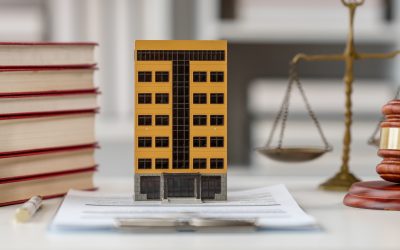While the State of New Jersey generally abides by the “American Rule” that litigants pay their own attorneys’ fees in lawsuits, and has a strong public policy against the shifting of costs, the Legislature and the courts have recognized several exceptions to this rule. The exceptions set forth in the Court Rules include certain costs in a family action, out of a fund in court, in a probate action, in an
action for the foreclosure of a mortgage, in an action to foreclose tax certificates, in an action upon a liability or indemnity policy of insurance, or as expressly provided by the New Jersey Court Rules with respect to certain specified actions. R. 4:42-9.
In addition to the allowances for recovery of fees set forth in the Court Rules, fee-shifting is allowed where expressly authorized by statute such as the Consumer Fraud Act, the Law Against Discrimination, the Environmental Rights Act, the Construction Lien Law, Prevailing Wage Act, Uniform Commercial Code and certain federal laws such as civil rights actions.
Statutes
A non-exhaustive list of the New Jersey statutes which permit counsel fees is set forth as follows:
N.J.S.A. § 59:9–5 (Tort Claim Act); N.J.S.A. §§ 56:10–1, 56:10–10 (New Jersey Franchise Practices Act); N.J.S.A. §§ 56:8–1 to 56:8–48 (Consumer Fraud Act); N.J.S.A. §§ 45:15–34, 37 (Real Estate Guaranty Fund); N.J.S.A. §§ 2A:35A–1 to 2A:35A–14 (Environmental Right Act); N.J.S.A. §§ 39:6A-24 to 39:6A-35 (Automobile Accident Arbitration Reform Act); N.J.S.A. §§ 34:15–1 to 34:15-142 (Workers’ Compensation Act); N.J.S.A. §§ 2A:15–59.1 (Frivolous Claims Statute); and N.J.S.A. §§ 43:21–1 to 43:21–71 (Unemployment Compensation).
Discrimination
New Jersey Civil Rights Act (N.J.S.A. § 10:6-1 et seq.) provides that counsel fee awards are permissible if there is a violation of a statutory or substantive right, and the New Jersey Law Against Discrimination (LAD) has a fee-shifting provision codified at N.J.S.A. § 10:5-27.1.
The NJ Supreme Court has held that under the LAD provision authorizing attorney fee awards to “prevailing parties,” a prevailing party is one who succeeds “on any significant issue in the litigation that achieves some of the benefit the parties sought in bringing suit.” Szczepanski v. Newcomb Med Cetr., 141 N.J.346, 355 (1995). The Court clarified in Tarr v. Bob Ciasulli and Bob Ciasulli Mack Auto Mall, Inc., 2004 WL 1765499 (Aug. 9, 2004), that this means a plaintiff who is awarded “some affirmative relief by way of an enforceable judgment against defendant or other comparable relief through a settlement or consent decree is a ‘prevailing party’” for purposes of the LAD’s attorney fee provision. The Court further ruled that “some affirmative relief” includes an award of only nominal damages, although the trial court will have the discretion in such an instance to award minimal attorney’s fees or no fees at all.
In circumstances where a litigant prevails and is entitled to fees, an application for same must be brought in a timely fashion. In the case of Urban League of Greater New Brunswick v. Mayor and Council of Borough of Carteret, 115 N.J. 536 (1989), prevailing parties in federal civil rights litigation against municipal defendants, charged that local zoning ordinances were not valid because of their exclusionary impact on low-income and moderate income persons in need of affordable housing. The New Jersey Supreme Court held that the application for counsel fees was unreasonably delayed without good reason and thus such fees were not recoverable.
If you’re concerned or have any questions regarding the potential to have legal fees recovered as a prevailing party, it is wise to consult with an attorney to determine if any exceptions to the general rule apply to you.
Spencer J. Rothwell is an Associate Attorney at WJ&L whose practice is in the Land Use, Real Estate and Litigation Departments.
